UNITY — Makai Poliquin comes from a family of home-schooled students. His two older sisters were home-schooled through high school. But as he entered high school, Makai sought something different.
The Ecology Learning Center in Unity, with its emphasis on sustainability and hands-on, environmentally based, outdoor learning, looked to be a perfect fit for the ninth-grader from Winterport.

Carolyn Phelps Scholz previously attended schools in Fairfield-based Maine School Administrative District 49. The Albion ninth-grader aspires to be an engineer to help build structures for communities in need. The Ecology Learning Center looked to be the right fit for her, too.
“It seemed like a really cool new opportunity,” Phelps Scholz said. “I really, really loved Lawrence for a lot of reasons — mainly, the music department was amazing — but I didn’t really fit in super well academically.
“This new school just kinda seemed like a completely new idea, and a really new option just to try. It’s one of those years where everything is changing, so why not just try something new?”
The Ecology Learning Center is off and running in its first year of existence, despite the coronavirus pandemic.
Poliquin’s friend Selig Nobel To’olo, a Brewer resident, initially found the school. Poliquin and To’olo met through hip-hop dance classes, and the To’olo’s mother told Poliquin’s about the Ecology Learning Center.
“It’s been amazingly different,” Poliquin said. “I like it way better. I was nervous at first, obviously, but getting into it was awesome. The teachers are amazing, the students are amazing and I like it a lot.”

Zackery Turner, left, and Mason Kenney, students at The Ecology Learning Center in Unity, tend their fire Thursday before brewing tea from pine needles during a fire-building lesson. The boys used branches to build a tripod and a root to hold their pot over the fire. Rich Abrahamson/Morning Sentinel Buy this Photo
The publicly funded charter school is the 10th in Maine, the newest and smallest. It is located at the former Unity Foundation building on Main Street and provides a curriculum that includes college preparatory reading, writing and mathematics, complimented by project-based environmental studies, service learning, apprenticeships, leadership training through outdoor adventure, folk music and homesteading crafts.
Four classrooms provide space for traditional instruction, but outdoor, hands-on education is emphasized. The school is within walking distance of places where hands-on learning is the norm, including the Hills to Sea Trail, Field of Dreams Park, Lake Winnecook and the Unity Barn Raisers Community Center.
Lēza Packard, Ecology Learning Center’s head of school, fills many roles. She is a superintendent, principal and executive director. Packard does not teach on a day-to-day basis, but sometimes steps in.
Packard worked for three years to start the school, but her vision for the school dates back a decade.
“The vision was and continues to be hands-on, outdoor learning and environmentally based,” she said. “The pandemic has been an opportunity to exercise that.”
The Ecology Learning Center opened this fall with 48 students in grades nine and 10. Transportation is provided to students, who come from 24 communities as far as Bangor.
An additional grade level will be added yearly until 2023, when the goal is to have 96 students across grades nine through 12.
With the enrollment at 48 and 12 faculty members, the population in the building is far less than the maximum occupancy of 220.
Packard served formerly as director of the outdoor classroom program at the Chewonki Foundation in Wiscasset. Her past also includes having taught environmental and agricultural education.
“We are the smallest public charter school in the state, and our intention is to remain the smallest in the state,” Packard said. “We’re really wanting to do quality over quantity, and keep it small.”

Students at The Ecology Learning Center in Unity, including Nicholas Cobb, center, sample tea Thursday brewed from pine needles during a fire-building lesson. Freshmen and sophomores participated in the outdoor learning. Rich Abrahamson/Morning Sentinel Buy this Photo
The Ecology Learning Center began the year with students studying in person five days a week, until two weeks ago, when Waldo County was designated “yellow” by the Mane Department of Education due to an elevated risk of COVID-19 spread.
The Ecology Learning Center then shifted to a hybrid plan that included in-person classes Monday, Tuesday and Thursday and remote learning Wednesday and Friday.
Last Friday, however, Waldo County went “green” again, so students are scheduled to return Monday to in-person learning every day.
In all aspects, The Ecology Learning Center focuses on sustainability. School lunches are grown and prepared by students using local, organic ingredients. For increased handwashing during the COVID-19 pandemic, the school uses environmentally friendly soaps.
Students at The Ecology Learning Center may participate in athletics through Mount View High School in Thorndike. Transportation is contracted through Regional School Unit 3. The special education director is also contracted through RSU 3.
Not all public charter schools have such a comprehensive relationship with a local public school district. Packard said they are “setting the precedent.”
“I was really excited about bringing those experiences, where it would be accessible to the students in Maine tuition-free,” Packard said.

Anita Oebel, left, and Kiki Spaulding, students at The Ecology Learning Center in Unity, heat water Thursday during a fire-building lesson. Freshmen and sophomores used the fire to brew tea from pine needles. Rich Abrahamson/Morning Sentinel Buy this Photo
Adam Williams teaches English, social studies and Spanish. However, he has a background in outdoor and experiential education in California, Maine and New Hampshire.
A Brunswick native, Williams taught canoeing, backpacking, GPS, climbing and more in the adventure ecotourism program at Unity College for three years.
“I have a bit of a mixed educational background,” Williams said. “Those sound like traditional subjects, but what’s great about bringing the background that I have is that they don’t have to be taught in traditional ways.
“We don’t just have to look at the standard ways of operating. We’re allowed to bring our experiences into the school. There’s a lot of room, excitement and energy to make it as nontraditional as possible.”
For example, in social studies classes, students learned about place names and their meanings through a class-created dictionary of Abenaki words. This week, they studied the election.
In their English classes, students wrote persuasive essays on the most beautiful leaf they could find this fall. They did a ranked-choice learning unit and voted on the best essay.
“Obviously, we have to meet standards and we have to follow state and federal standards for assessments and things like that. That’s there and that’s a reality we have to do,” Williams said. “What I feel like we’re doing is supporting young people to become adults and become more compassionate about the world around them.”
On Thursday, students learned how to build fires and dig roots to make baskets.
“This was the best option compared to any of the other high schools, in my opinion,” Poliquin said. “It’s an ecology school, and that fits well with me and my parents’ beliefs. And the teachers are awesome.”
Students are evaluated through portfolios of work, including narrative evaluations, portfolio assessments and performance-based learning.
“It’s very different in the best way possible,” Phelps Scholz said. “It feels less pressured, but also somehow manages to have helped me learn so much in a short time.”
Copy the Story LinkSend questions/comments to the editors.


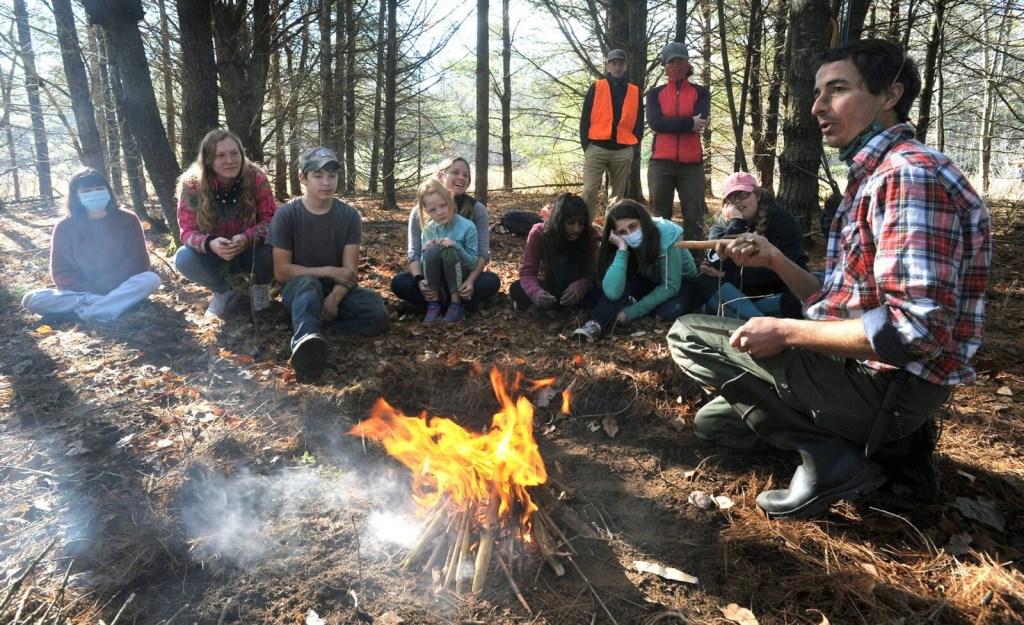
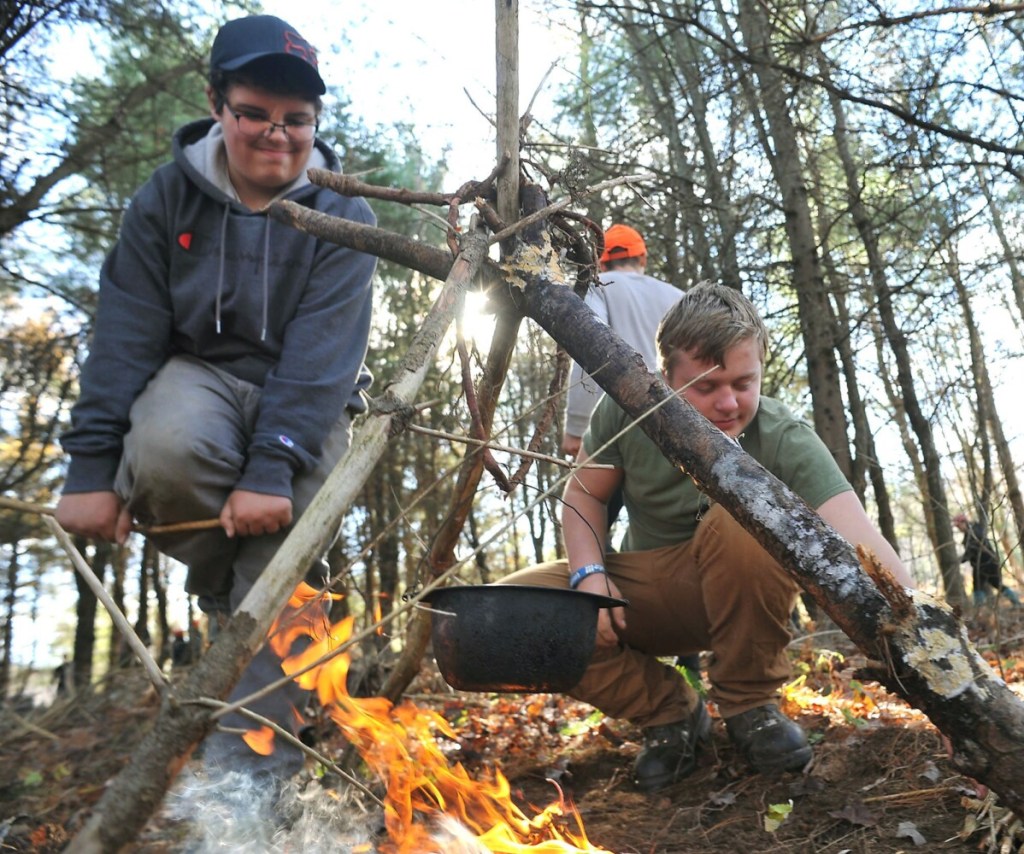

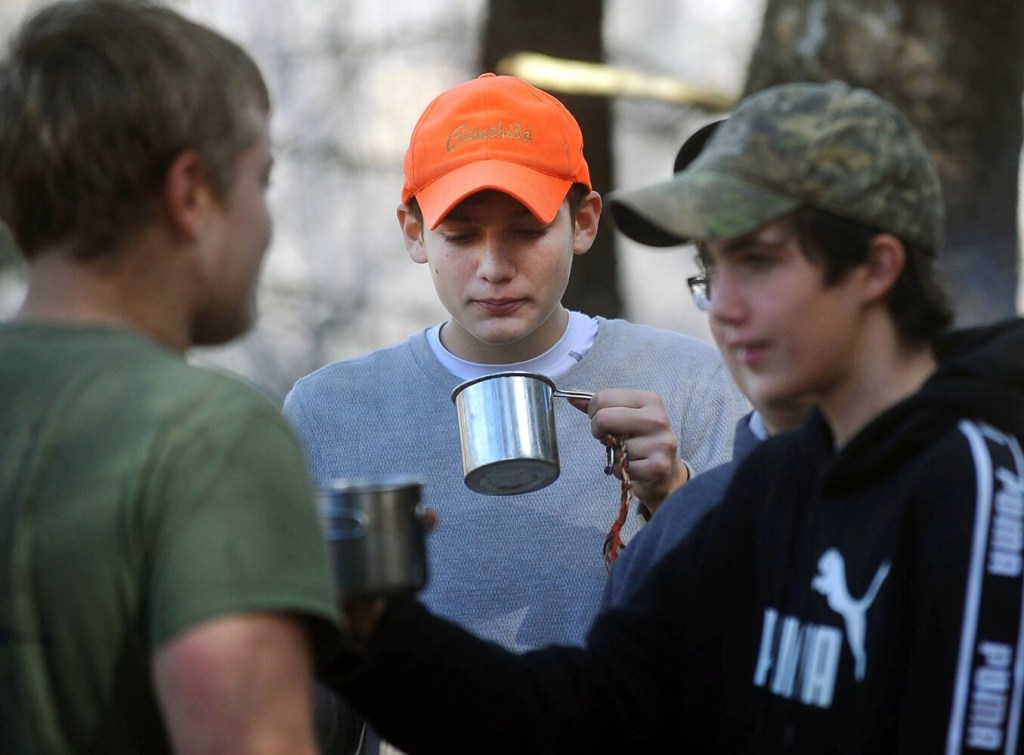
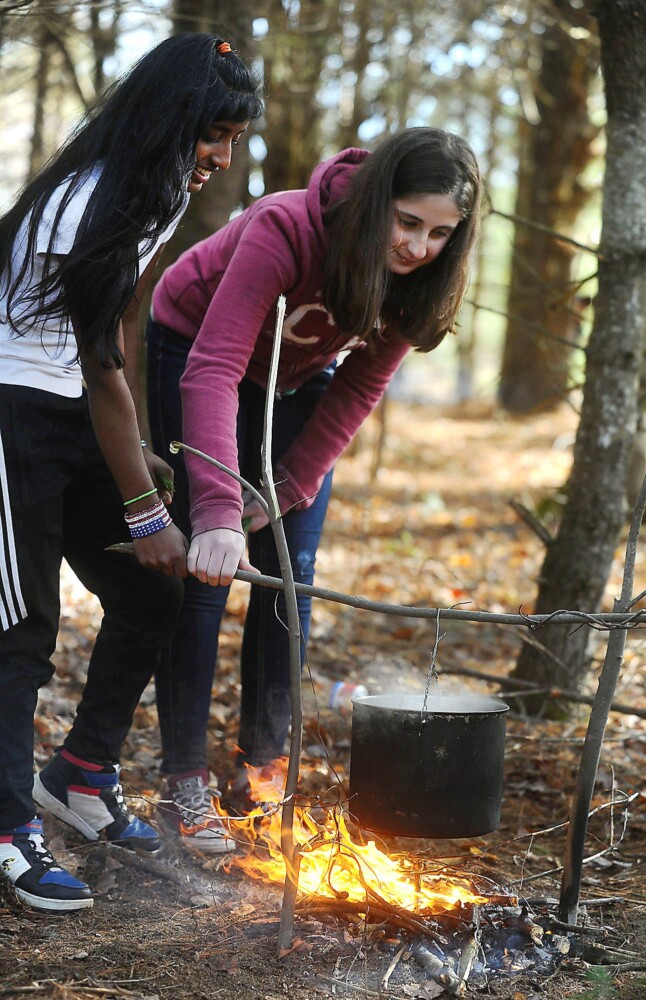
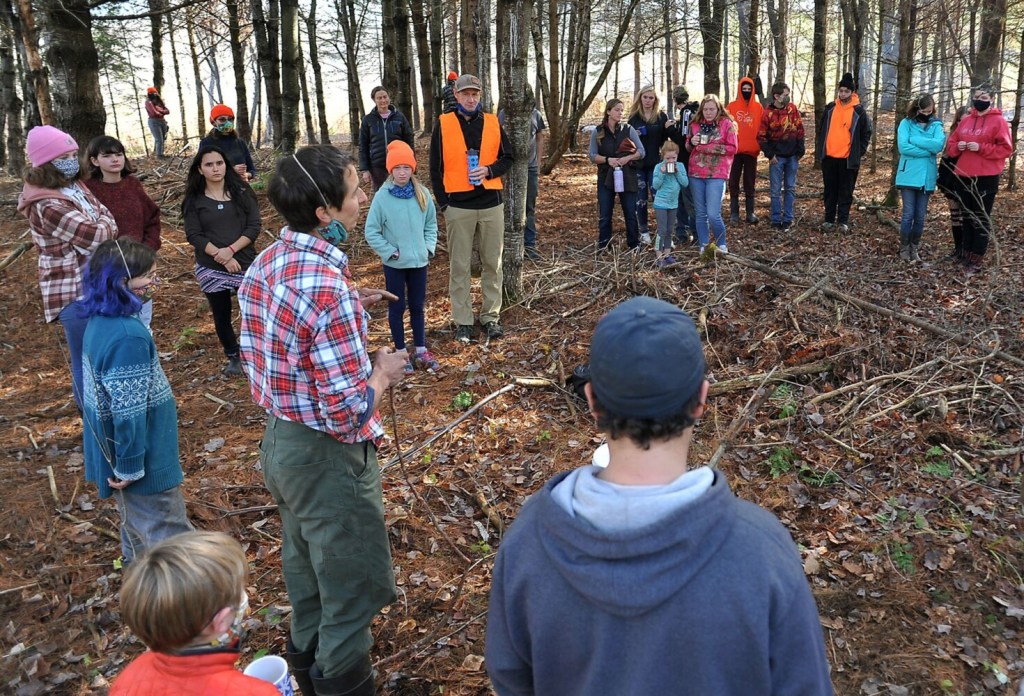

Success. Please wait for the page to reload. If the page does not reload within 5 seconds, please refresh the page.
Enter your email and password to access comments.
Hi, to comment on stories you must . This profile is in addition to your subscription and website login.
Already have a commenting profile? .
Invalid username/password.
Please check your email to confirm and complete your registration.
Only subscribers are eligible to post comments. Please subscribe or login first for digital access. Here’s why.
Use the form below to reset your password. When you've submitted your account email, we will send an email with a reset code.